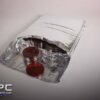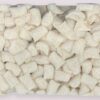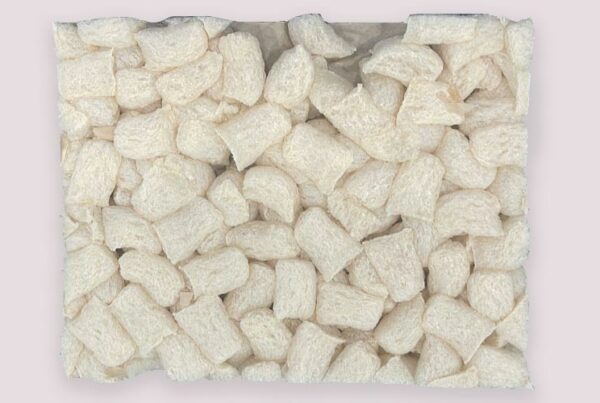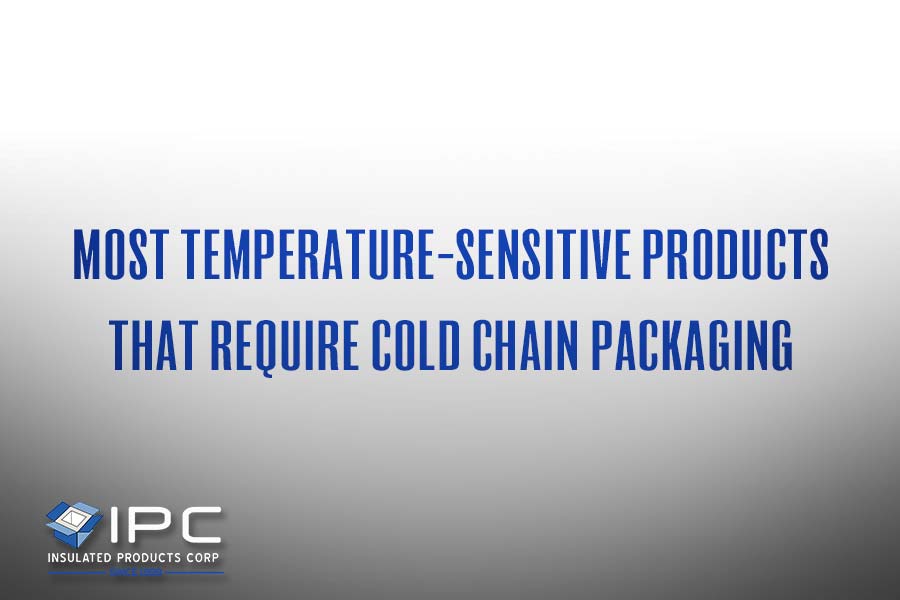
The quality and freshness of temperature-sensitive products can change with even the slightest changes in temperature, making it very important to utilize insulated shipping products that can keep these items safe during transport. Special care is required when shipping certain products, which have to remain at a fairly consistent temperature during transportation. High-performance insulated packaging materials can ensure they arrive with little to no damage from the heat or cold they can be exposed to during shipping.
Below we have listed some of the most temperature-sensitive products that require cold chain packaging.
1. Medical Products
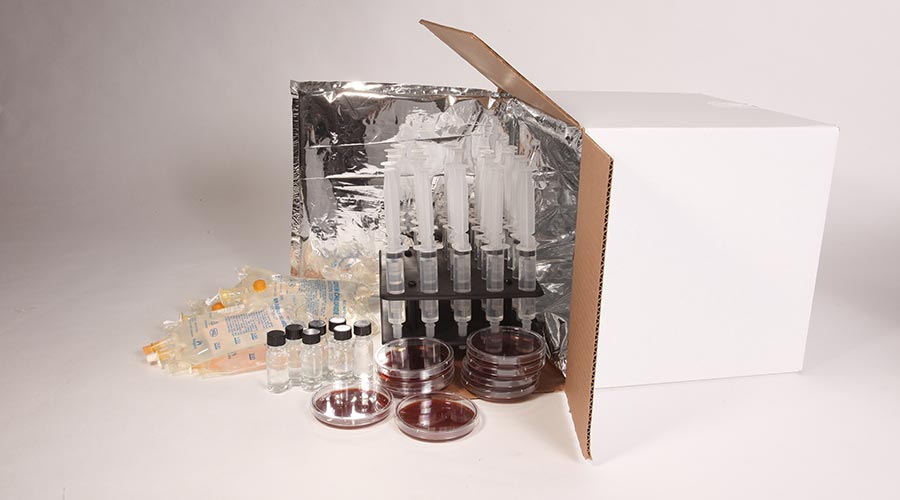
Pharmaceutical products inside an insulated box liner.
Whether it’s vaccines, blood, insulin, medical devices, blood products like plasma or other pharmaceutical products, it’s important that any medical products shipped are protected from heat and cold. Certain medical products must be kept at near room temperature (between 64-73 °F) depending on the product. An example of an item tat requires a low refrigerated temperature, live vaccines must be kept at 5°C (within the 2-8 °C range) or lower, otherwise they will degrade in quality.
2. Wine
Believe it or not, heat and wine absolutely do not mix. Wine connoisseurs know the difference between flat wine and quality wine. A good rule of thumb with wine is: the hotter you store it, the quicker it will age. The more it ages, the flatter the flavor. If your wine takes several days to ship, then you better make sure it can handle fluctuating temperatures; otherwise your wine will arrive at a sub-optimal quality.
3. Ice Cream
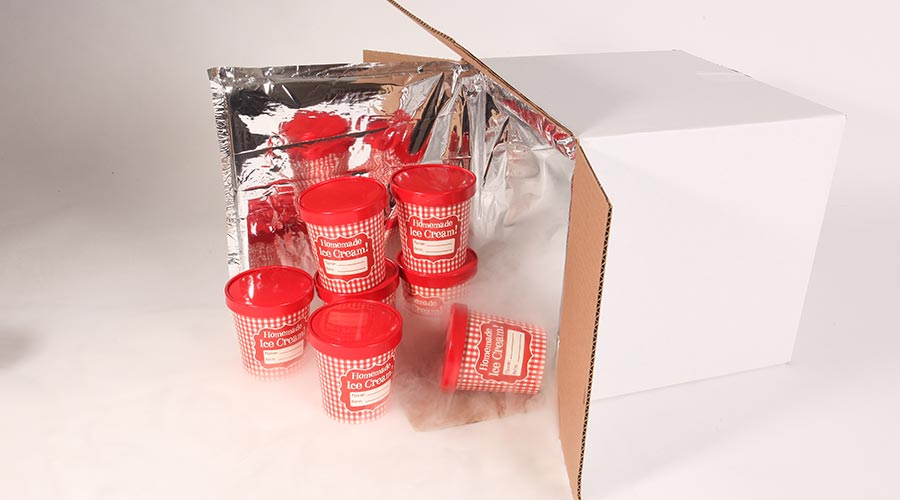
Ice cream products in insulatedd packaging
A fragile product, ice cream obviously needs to remain below freezing at all times, protected from ambient heat during transport. If ice cream is exposed to temperatures above freezing, it melts. Ice cream that has melted has a chance of becoming tainted from bacteria, overflowing from inside the tub it was packed in, and does not retain its consistency. Ice cream that has been re-frozen becomes more crystallized due to evaporation (i.e. absorbing moisture from the amvient environment), ruining the flavor experience your consumers come to enjoy.
4. Fresh Fruit
Fruit is a very temperature-sensitive food product, especially berries and other thin skinned fruits. A common mistake that is made in the process of shipping specialty fruits and vegetables is incorrect packaging that results in bruised fruits that consumers will skip over without question. Optimal cold chain management for fresh fruit requires proper insulated food packaging to maintain temperature while eliminating moisture and condensation and decreasing the chance of bruising from rough handling.
5. Meats
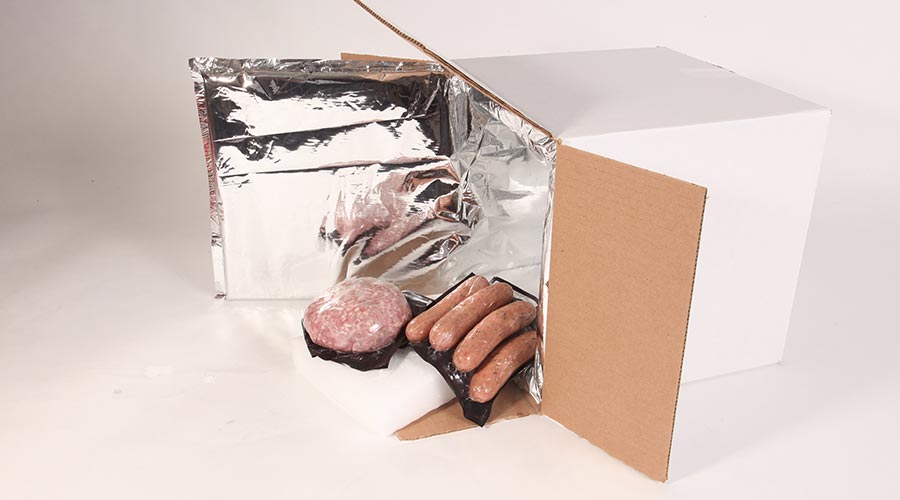
Meat products include sausages and burgers in an insulated box liner.
Meat is a product that bacteria loves to thrive on in the right temperatures. A rule of thumb with shipping raw meat: if it’s exposed to ambient temperatures that exceed 40 degrees Fahrenheit for more than two hours, it should be thrown away. It’s better to be safe than sorry with various meats, calling for exceptional quality standards that can be perfectly achieved with IPC’s insulated box liners.
You cannot rely on a shipping service to keep your product in temperature-controlled environments from start to finish, even though they may claim so. This is why it’s crucial to use insulated shipping services with the best packaging practices in order to help accomplish your goals of meeting quality standards.

